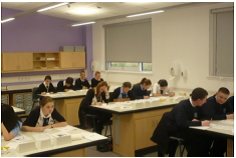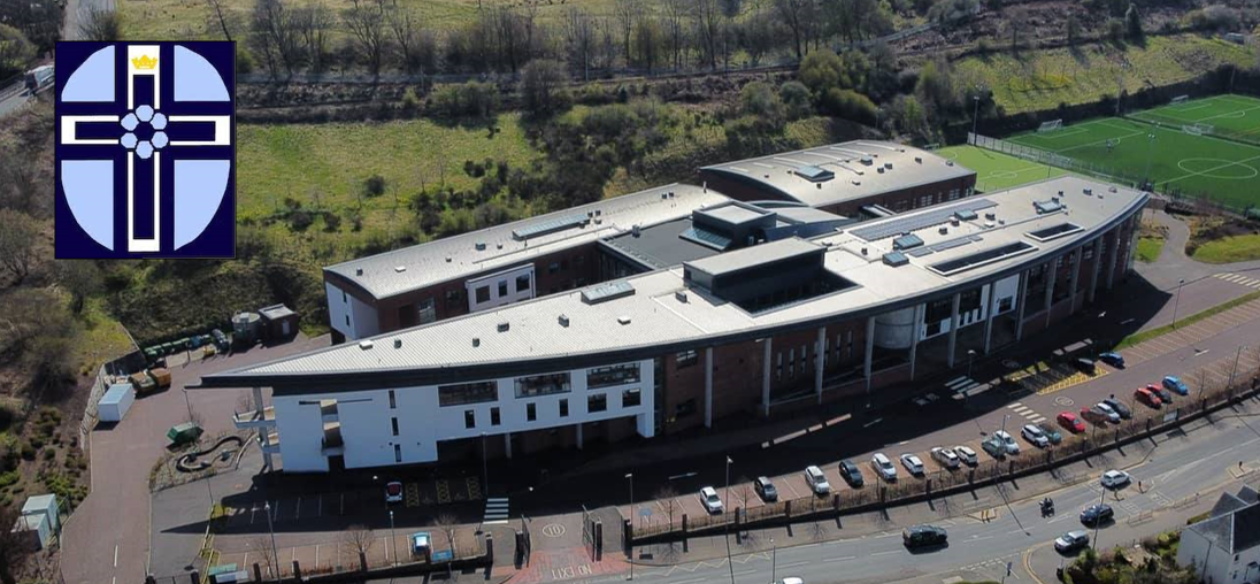Everyone has problems
 All pupils meet some problems in learning. In the main, these problems are tackled by the subject departments who work to ensure that the curriculum offered can be understood by all pupils. They may do this perhaps by offering different material, or different teaching approaches to those pupils having difficulty. Language and learning are very closely linked and for this reason, every department is asked to have a language policy. This helps them to highlight areas of possible difficulty and how they intend to overcome the likely problems. New words, for example, may have to be shown in a consistent way, perhaps by the use of posters around the room. How work is corrected is displayed for all teachers and pupils to see.
All pupils meet some problems in learning. In the main, these problems are tackled by the subject departments who work to ensure that the curriculum offered can be understood by all pupils. They may do this perhaps by offering different material, or different teaching approaches to those pupils having difficulty. Language and learning are very closely linked and for this reason, every department is asked to have a language policy. This helps them to highlight areas of possible difficulty and how they intend to overcome the likely problems. New words, for example, may have to be shown in a consistent way, perhaps by the use of posters around the room. How work is corrected is displayed for all teachers and pupils to see.
Staged Intervention
The school plans its intervention to meet the additional support needs of pupils according to a four-stage framework, which ranges from
(1) initial identification of a need, through (2) a stage of specific planning by the classroom teacher, (3) planning of an individualised education programme (IEP) if necessary, to (4) a Coordinated Support Plan (CSP) where the child’s needs require to be met by a range of agencies.
Learning Support Department
One of the main duties of the Learning Support Department is to advise and assist other departments, as they teach their subjects in a way which will be suitable for pupils who may have additional support needs.
Cooperative Teaching
Help for pupils with learning difficulties also comes from using Learning Support staff in classrooms. This happens regularly in English and Maths classes as well as in other areas of the curriculum. In this way, pupils having difficulty have more opportunity to have extra help with the work of the class.
Individual Attention
Pupils who need more individual attention for help with basic language may be taken out of the classroom for a language programme over a specific number of weeks.These children will be taught through a programme of work devised by the Learning Support Specialist. We vary the arrangement regularly to ensure that no one subject is missed too often.
Network Support
Special help can be given, by a Network Support teacher, to pupils who have specific problems, such as dyslexic difficulties. If a child’s problems are more serious and perhaps long term, we can approach the PsychologicalService for their specialised expertise.
Special Schemes
There are a number of schemes running for short blocks of time, which offer support to groups of pupils. The Social Skills Group is aimed at pupils whose behaviour may be reticent, boisterous or simply individual, and who are having some problems settling into Notre Dame. The Reading Workshop is run by Network Support with additional support staff, and encourages pupils to enjoy reading activities through the use of attractive books and group language games. The Paired Reading Scheme brings S1 pupils together with senior pupils who act as tutors in a one-to-one situation.
Behaviour Support
Behaviour Support is offered by specialist staff, specifically to address problems of a behavioural or emotional nature. Pupils are counselled, often daily, and set targets for the short term.
Examinations
By the time pupils reach the stage of certificate examinations, the special strategies which have been needed in their classes can usually be given in the form of Special Arrangements. This is intended only to allow the pupil to show what they have actually learned. Some pupils, for example, can be allowed to have a scribe to record their answers on paper, while others may be given extra time.
Stella Maris Communication and Language Department (CLD)
The Stella Maris Communication and Language Department is part of Notre Dame High School and provides support for young people with Autism Spectrum Condition (ASC).
The department specialises in supporting a number of young people, all of whom are on the autism spectrum, through the provision of a wide range of supports in order to maximise their potential. This tailored approach aims to meet individual needs. It offers a targeted approach covering social skills development, independent living skills, emotional wellbeing and practical support in learning.
This is achieved through a strong focus on partnership with parents, other agencies and the wider community and we are committed to increasing independence by supporting our young people to achieve and be included in society. We place great importance on ensuring that our young people have opportunities to engage in a wide range of experiences, and that these experiences provide contexts for well planned learning and teaching. We also aim to ensure that our young people participate in all experiences as independently as possible with the right level and type of challenge and support.
Timetables are bespoke, agreed in collaboration with our young people and parents. Each timetable meets individual needs with the aspiration that the young people access as much of the mainstream part of the school as is appropriate.
Placement in the CLD is the decision of Inverclyde’s Additional Support Needs (ASN) Forum. Pupils transitioning from primary school will have enhanced opportunities to meet with staff and peers and become familiar with the learning environment prior to starting secondary school in August.

